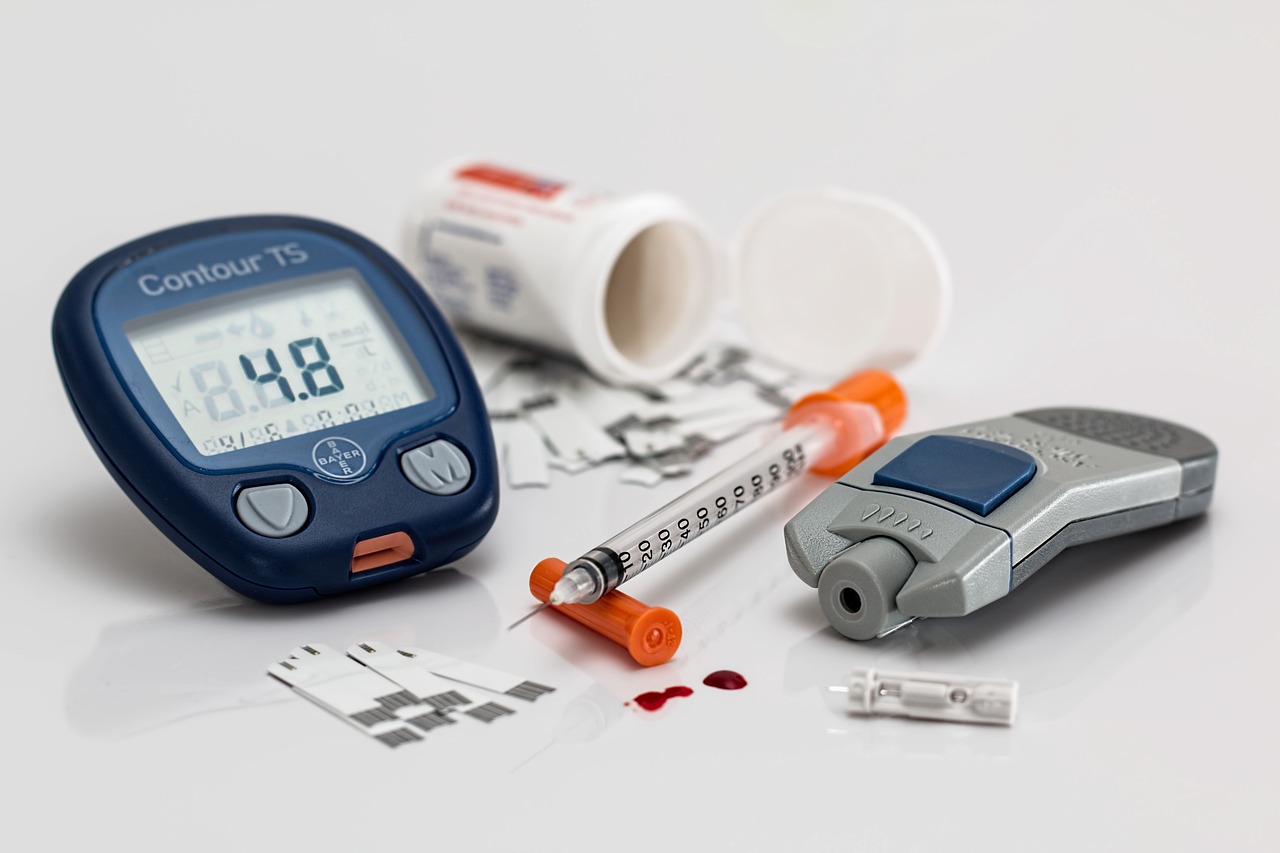Discover How Diet and Exercise Can Transform Diabetes Management
Introduction:
Living with diabetes necessitates a comprehensive strategy that encompasses meticulous attention to diet and consistent engagement in physical activity. By embracing healthy lifestyle habits, individuals can effectively regulate blood sugar levels, enhance insulin sensitivity, and mitigate the risk of complications. In this guide, we delve into the pivotal role of diet and exercise in diabetes management, providing actionable advice and insights for optimizing health and well-being.
Understanding Diabetes:
Diabetes is a chronic condition characterized by elevated blood sugar levels due to either inadequate insulin production or impaired insulin utilization. Type 1 diabetes results from autoimmune destruction of insulin-producing pancreatic cells, while type 2 diabetes involves insulin resistance, where cells become less responsive to insulin's actions.
Dietary Strategies for Diabetes Management:
A well-balanced diet serves as a cornerstone of diabetes management, exerting significant influence over blood sugar control and overall health. Key dietary principles for individuals with diabetes include:
1. Carbohydrate Monitoring:
Monitoring carbohydrate intake is crucial, as carbohydrates have the most pronounced impact on blood sugar levels. Focus on consuming complex carbohydrates with a low glycemic index, such as whole grains, legumes, fruits, and vegetables, while limiting simple sugars and refined carbohydrates.
2. Prioritizing Protein and Healthy Fats:
Incorporating lean protein sources and healthy fats into meals helps stabilize blood sugar levels and promote satiety. Opt for lean meats, fish, poultry, tofu, nuts, seeds, and olive oil to enhance the nutritional profile of your diet.
3. Portion Management:
Practicing portion control is essential for regulating blood sugar levels and managing calorie intake. Use measuring utensils, food scales, or visual cues to ensure appropriate portion sizes and prevent overeating.
4. Balanced Meal Planning:
Strive for balanced meals that combine carbohydrates with protein and healthy fats to help maintain steady blood sugar levels throughout the day. Additionally, incorporating nutritious snacks between meals can prevent blood sugar fluctuations and curb hunger.

The Essential Role of Fiber in Diabetes Management
Fiber, a type of carbohydrate predominantly found in plant-based foods, holds significant importance in effectively managing diabetes. Here's an in-depth exploration of how fiber can positively impact individuals living with diabetes:
1. Blood Sugar Regulation:
Fiber plays a pivotal role in moderating blood sugar levels, particularly post-meal spikes. Soluble fiber, in particular, forms a gel-like substance in the digestive tract, slowing down the absorption of glucose into the bloodstream. This mechanism aids in stabilizing blood sugar levels, thereby reducing the risk of hyperglycemia, a common concern for individuals with diabetes.
2. Enhanced Insulin Sensitivity:
Adequate fiber intake has been associated with improved insulin sensitivity, a key factor in diabetes management. By promoting better cellular response to insulin, fiber facilitates more efficient regulation of blood sugar levels, particularly beneficial for individuals with type 2 diabetes, where insulin resistance is prevalent.
3. Support for Weight Management:
Fiber-rich foods tend to be lower in calories and more filling than their low-fiber counterparts. By promoting feelings of satiety and reducing hunger pangs, fiber assists in controlling appetite and caloric intake, which can be instrumental in weight management efforts. Maintaining a healthy weight is essential for individuals with diabetes to optimize their overall health and prevent complications.
4. Heart Health Benefits:
Diabetes is often accompanied by an increased risk of cardiovascular disease. Fiber-rich foods, such as whole grains, fruits, vegetables, legumes, and nuts, contribute to heart health by lowering cholesterol levels and promoting cardiovascular well-being. Incorporating these foods into the diet can help mitigate the risk of heart disease and related complications.
5. Digestive Health Promotion:
Fiber is renowned for its role in promoting digestive health by supporting regular bowel movements and preventing constipation. Additionally, adequate fiber intake can reduce the risk of diverticulitis, an inflammatory condition affecting the digestive tract. By maintaining optimal digestive health, fiber contributes to overall well-being and aids in minimizing diabetes-related complications.

The Role of Exercise in Diabetes Management:
Regular physical activity is integral to diabetes management, as it improves insulin sensitivity, lowers blood sugar levels, and supports weight management. The American Diabetes Association recommends at least 150 minutes of moderate-intensity aerobic exercise per week, such as brisk walking, cycling, swimming, or dancing, spread out over at least three days.
Strength training exercises should also be incorporated into the routine to build muscle mass and enhance metabolic health. Aim for two or more days of strength training per week, targeting major muscle groups with a variety of exercises.
Practical Tips for Success:
Implement the following practical strategies into your daily routine to effectively manage diabetes through diet and exercise:
1. Keep a Food Journal: Tracking food intake can help identify patterns and make informed decisions about meal planning and portion control.
2. Choose Whole Foods: Prioritize whole, minimally processed foods over highly processed options to maximize nutrient intake and minimize added sugars and unhealthy fats.
3. Stay Hydrated: Stay adequately hydrated by consuming ample water throughout the day, promoting overall well-being. Opt for healthier beverage choices such as water, herbal tea, or sparkling water, while reducing intake of sugary beverages.
4. Set Achievable Goals: Establish realistic goals for diet and exercise and track progress over time to stay motivated and celebrate successes along the way.
5. Seek Support: Don't hesitate to seek guidance from healthcare professionals, dietitians, or support groups for assistance, encouragement, and accountability on your journey to managing diabetes.
Conclusion:
Managing diabetes through diet and exercise empowers individuals to take control of their health and well-being. By adopting a balanced diet, monitoring carbohydrate intake, engaging in regular physical activity, and implementing practical lifestyle strategies, individuals with diabetes can achieve better blood sugar control, reduce the risk of complications, and enhance their quality of life. Remember that consistent, incremental changes over time can yield significant improvements in diabetes management and overall health.

FAQs on Managing Diabetes through Diet and Exercise
1. How does diet impact diabetes management?
Diet profoundly influences diabetes management by directly affecting blood sugar levels and overall health. Opting for a balanced diet rich in fiber, whole grains, lean proteins, and healthy fats assists in stabilizing blood sugar levels and mitigating the risk of diabetes-related complications.
2. What are some dietary guidelines for individuals with diabetes?
For individuals with diabetes, prioritizing complex carbohydrates with a low glycemic index, monitoring carbohydrate intake, and integrating ample fruits, vegetables, lean proteins, and healthy fats into their diet are crucial. Portion control and adherence to regular meal schedules are also vital for blood sugar management.
3. How does exercise benefit diabetes management?
Regular physical activity offers myriad benefits for managing diabetes. It enhances insulin sensitivity, lowers blood sugar levels, aids in weight management, promotes cardiovascular health, reduces stress, and enhances overall well-being.
4. What types of exercise are recommended for individuals with diabetes?
Recommended exercises for managing diabetes include aerobic activities such as walking, cycling, swimming, and dancing, which elevate heart rate and improve cardiovascular fitness. Strength training exercises like weightlifting or resistance training also aid in building muscle mass and enhancing metabolic health.
5. How often should individuals with diabetes exercise?
The American Diabetes Association recommends at least 150 minutes of moderate-intensity aerobic exercise per week, distributed across a minimum of three days. Additionally, strength training exercises should be performed two or more days weekly.

6. Are there any precautions individuals with diabetes should take before starting an exercise program?
Before commencing a new exercise regimen, individuals with diabetes should consult their healthcare provider, especially if they have underlying health conditions. Adjustments to medications or closer monitoring of blood sugar levels during exercise may be necessary.
7. How can I stay motivated to make healthy lifestyle changes for diabetes management?
Sustaining motivation for healthy lifestyle changes entails finding enjoyable activities, setting realistic goals, tracking progress, and garnering support from friends, family, or healthcare professionals. Celebrating milestones along the journey can also foster motivation and perseverance.
8. What should I do if I experience a blood sugar drop during or after exercise?
In the event of hypoglycemia during or post-exercise, swift consumption of fast-acting carbohydrates like glucose tablets, fruit juice, or candy is imperative to swiftly elevate blood sugar levels. Monitoring blood sugar levels closely and adjusting carbohydrate intake and medication as needed is essential.
9. How can I create a personalized diet and exercise plan for managing diabetes?
Collaborating with a registered dietitian, certified diabetes educator, or healthcare provider is pivotal in crafting a personalized diet and exercise regimen tailored to individual needs, preferences, and health objectives. Their guidance and support facilitate successful diabetes management through diet and exercise.
Powered by Froala Editor





Leave a Reply